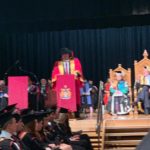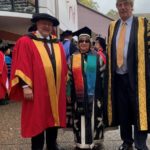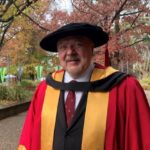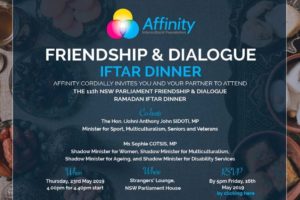News Release
GENEVA (5 March 2019) – States must step up measures to protect freedom of religion or belief, a UN human rights expert said today, citing concerns about the increasing use of anti-blasphemy laws and the imposition of draconian criminal penalties for expressing an opinion about religion.
“The increasing application of limits on freedom of expression, including new legal and extra-legal limitations by State and non-State actors, is having a concerning impact on freedom of religion or belief, globally,” Ahmed Shaheed, the UN Special Rapporteur on freedom of religion or belief, told the Human Rights Council in Geneva.
“Freedom of religion or belief and freedom of expression are closely interrelated and mutually reinforcing rights when exercised within the legal framework established by international human rights law. Consequently, where we observe abuses of one right, we are likely to see the stage being set for abuses of the other,” he said.
In his report to the Council, Shaheed presented examples of restrictions on freedom of expression, including public order measures, anti-blasphemy, anti-proselytising and anti-apostasy laws, as well as policies to combat religious hatred and extremism.
. Asia Bibi, a Pakistani Christian woman sentenced to death for blasphemy in 2010. Bibi was reportedly accused of defiling the cup meant for her Muslim colleagues after drinking water from the vessel, on the grounds that as a Christian she was ‘unclean’ and forbidden to use the same utensils as Muslims.
. Ashraf Fayadh, Palestinian poet and artist, who was sentenced to death in the Kingdom of Saudi Arabia for apostasy in 2015, after which an appeals court commuted the sentence to eight years in prison and 800 lashes. He was accused of apostasy because he allegedly questioned religion and promoted atheism through his poetry. Mr. Fayadh remains a prisoner of conscience, detained for the mere peaceful expression of his opinion.
· “Pussy Riot”, the Russian feminist punk rock protest group which briefly performed (and filmed itself performing) a song deemed critical of the authorities on 21 February 2012 in the restricted part where the altar is located in Moscow’s largest Russian Orthodox Church. Members of the band were arrested and criminally charged with hooliganism.
· Adoption of an amendment to Nepal’s penal code in 2017, which criminalises ‘hurting of religious sentiment” and religious conversion.
Shaheed said that nearly 70 States have anti-blasphemy laws, with 30 States also carrying anti-apostasy laws. In some jurisdictions, either or both of these laws may provide for the use of the death penalty.
“There has been a revival of anti-blasphemy and anti-apostasy laws, a proliferation of, and increasing reliance on, public order laws to limit expression deemed to be offensive to religious or belief communities, along with increasing investments in strategies that combat expression which incites persons to discrimination, hostility or violence against persons on the basis of religion or belief,” said the Special Rapporteur. At the same time, he welcomed that some countries have recently repealed their former anti-blasphemy laws.
Shaheed urged States developing strategies to tackle the issues to be guided by international initiatives like the Rabat Plan of Action, which seek to operationalise States’ obligations to respond to any promotion of religious hatred. He also stressed that the Beirut Declaration on “Faith for Rights” was a source of important guidance and inspiration for action.
ENDS
Mr. Ahmed Shaheed (Maldives) was appointed as Special Rapporteur on freedom of religion or belief by the UN Human Rights Council in 2016. Mr. Shaheed is a Visiting Professor at Essex University, UK; a former member of the Maldivian presidential Commission Investigating Corruption; and a foreign policy advisor to the President of the Maldives. He was Foreign Minister of the Maldives from 2005 to 2007 and from 2008 to 2010. He led the country’s efforts to sign and ratify all nine international human rights Conventions and to implement them in law and practice.
The Special Rapporteurs are part of what is known as the Special Procedures of the Human Rights Council. Special Procedures, the largest body of independent experts in the UN Human Rights system, is the general name of the Council’s independent fact-finding and monitoring mechanisms that address either specific country situations or thematic issues in all parts of the world. Special Procedures experts work on a voluntary basis; they are not UN staff and do not receive a salary for their work. They are independent from any government or organization and serve in their individual capacity.
For inquiries and media requests: Ms Vanessa Asensio Perez (+41 79 444 6129 / vasensioperez@ohchr.org ) or write to freedomofreligion@ohchr.org
For media inquiries related to other UN independent experts:
Mr. Jeremy Laurence, UN Human Rights – Media Unit (+ 41 22 917 9383 / jlaurence@ohchr.org)
Follow news related to the UN’s independent human rights experts on Twitter @UN_SPExperts.
Concerned about the world we live in? Then STAND UP for someone’s rights today. #Standup4humanrights and visit the web page at http://www.standup4humanrights.org



